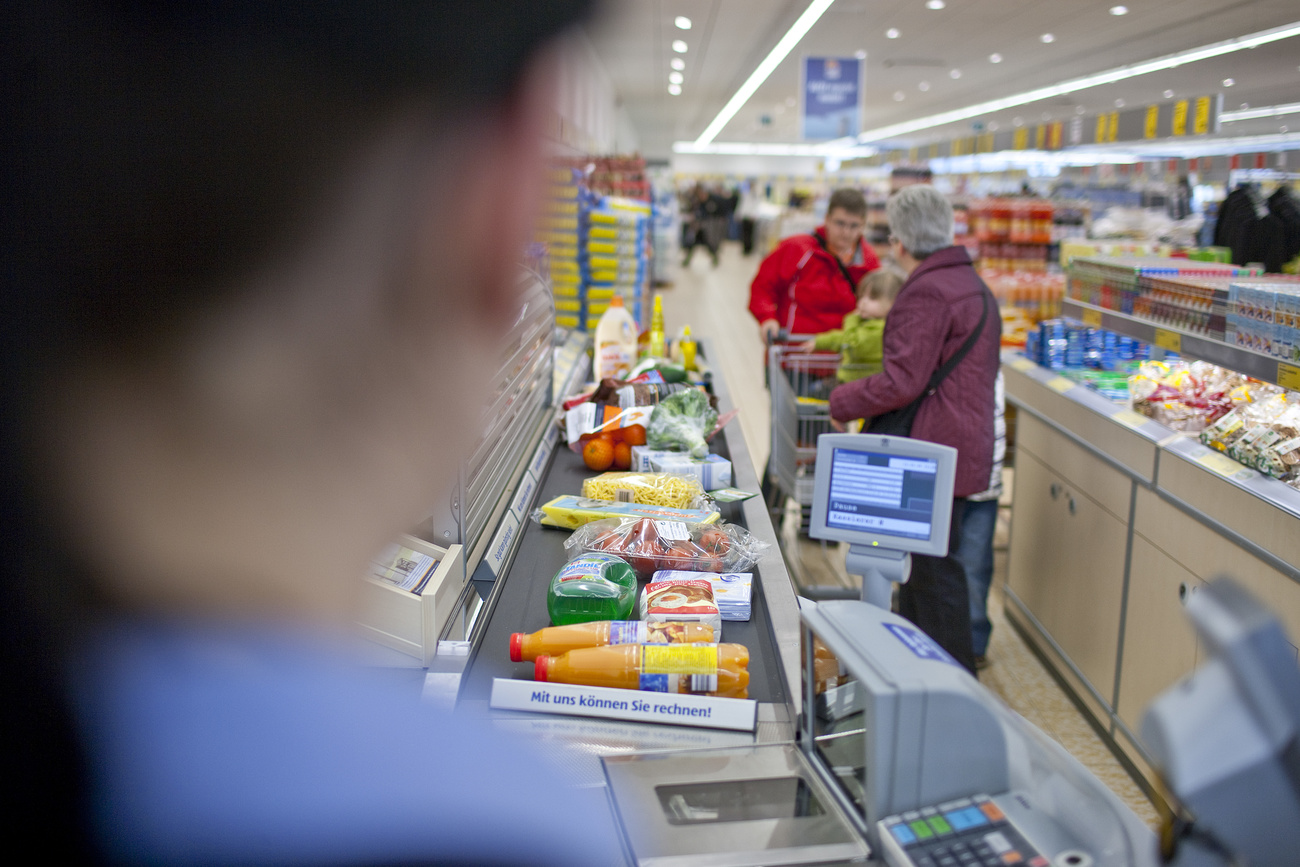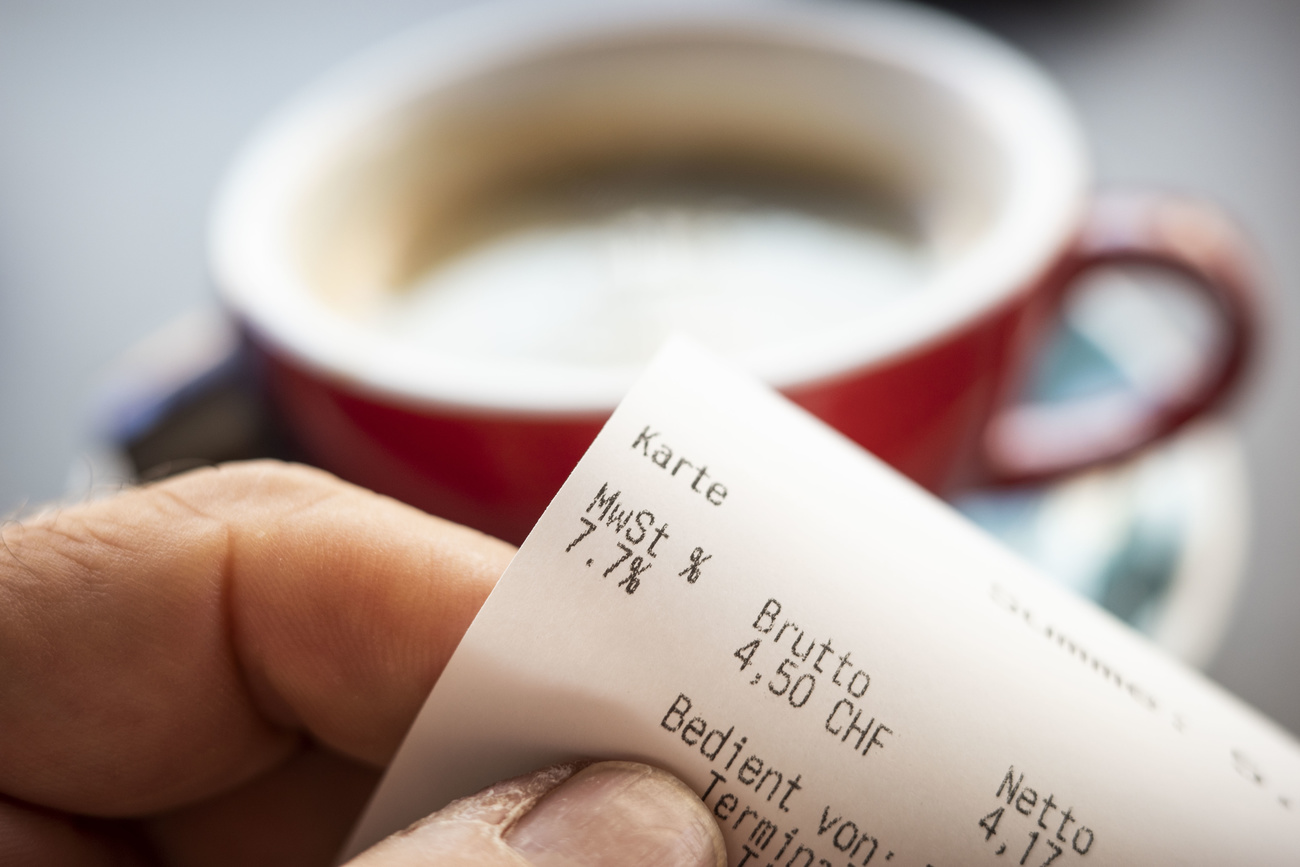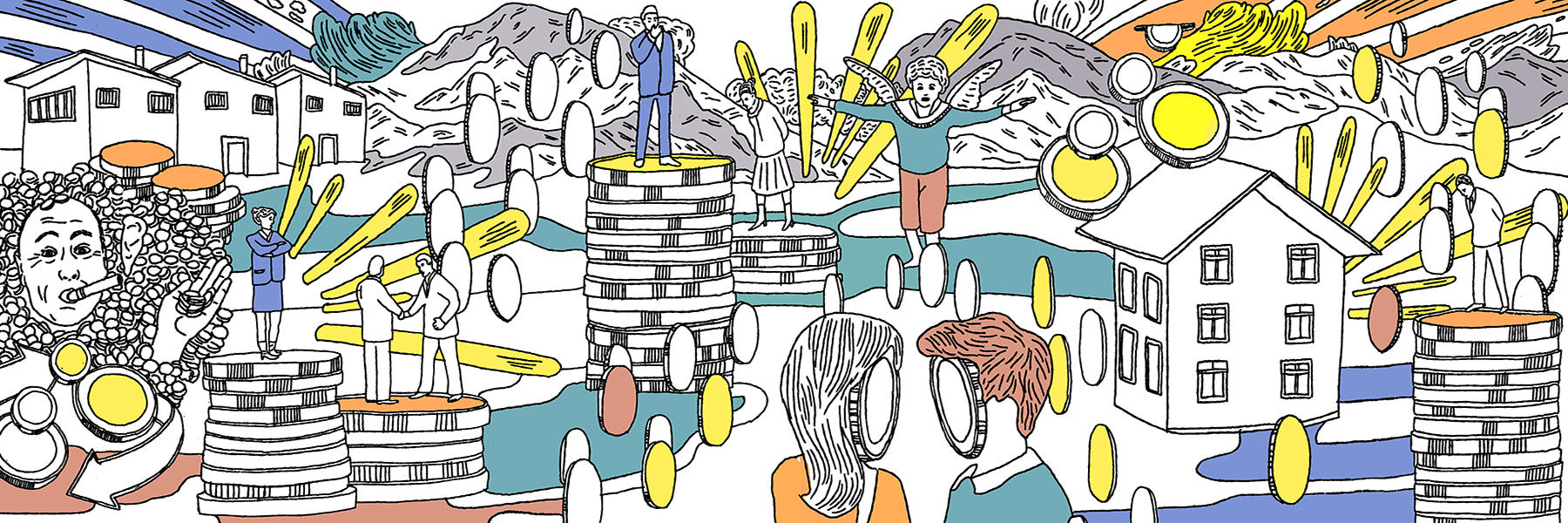Explainer: how Switzerland is dealing with rising prices

Although inflation remains relatively low in Switzerland (3.5%), rising prices for energy and certain basic consumer goods risk exerting a major impact on Swiss households. A look at how inflation is affecting Switzerland.
Why is Switzerland less affected by inflation than other countries?
Supply problems linked to the Covid-19 pandemic and the strong recovery in global demand following the health crisis have caused energy and commodity prices to soar globally. The war in Ukraine has made the situation worse. The upward trend is clearly a global phenomenon and therefore that also affects Switzerland.
The Alpine country nonetheless managed to contain inflation compared to other countries. The overall consumer price index rose by 3.5% over one year in Switzerland, versus 10% in the European Union and over 8% in the United States.
Energy prices increased in Switzerland by 28% and food prices by 2%, against 38% and 10.6% in the eurozone.
The current strength of the Swiss franc acts as a buffer.
“The euro has lost almost 10 cents against the franc since the start of the year, which means that imported goods are a lot cheaper,” explains Mathieu GrobétyExternal link, director of the Institute of Applied Economics at the University of Lausanne. Around one-quarter of all products consumed in Switzerland are affected.
The economics expert adds that energy prices in Switzerland are slightly less concerned by international fluctuations than for other countries, due to a regulated market where part of the pricing is fixed in advance and to a larger share of renewable energy produced by Alpine dams.

The location of non-EU member Switzerland, in the heart of Europe surrounded by eurozone countries, and concerns about large numbers of Swiss regularly crossing the border to neighbouring countries for cheaper offers, have also played a role, according to Grobéty. Swiss food distributors have not immediately passed on higher global costs to dissuade Swiss consumers from making their purchases abroad. But Mathieu Grobéty still expects inflation to “catch up [to other countries] by the end of the year and then to slow down from the start of 2023”.
How is inflation visible in Switzerland ?
The prices of many basic goods and supplies, such as energy, have risen over the past 12 months. For example, the price of heating oil, used by around 40% of Swiss households, has almost doubled, and gas has jumped by nearly 60%.
Electricity prices are usually announced every year at the end of August. An average rise of 27% is expected for 2023, with large differences depending on where you live ‒ in Switzerland the electricity network is managed locally with around 600 suppliers. Some municipalities will receive record increases, such as Saint-Prex in canton Vaud, where the commune’s electricity bill is set to rise by 1,600% from CHF70,000 to CHF1.3 million.
Basic food items, such as cooking oil or pasta, are about 10% more expensive in Switzerland. And price increases for such things are starting to have an impact on household budgets. According to the Federal Statistical OfficeExternal link (OFS), each Swiss household spent an average of CHF535 on food every month during the first quarter of 2020, compared to CHF586 during the second quarter of 2022. During this period, the average share of income spent on food rose from 5.5% to 6%.
Another major expense for Swiss residents that is not included in the consumer price index is compulsory health insurance. Experts say health insurance premiums should rise by 5-10% in 2023 ‒ while they fell by 0.2% in 2022 and increased by 0.5% in 2021.
Wages have so far not followed the upward trend. In 2021, a slight decline in salaries on top of inflation caused employees to lose 0.8% of their purchasing power, according to OFSExternal link. Figures for 2022 are not yet available.
Can the Swiss endure price increases?
Swiss salaries are, on average, higher than in most other countries. The share of monthly income spent on food and energy is lower in Switzerland than elsewhere, explains Mathieu Grobéty. “In Switzerland, they represent 20% of the average monthly basket, versus 30% in the eurozone,” he says.
But inflation has a disproportionate impact on low-income households and on people who spend much of their monthly budget on energy.
“Inflation acts like a tax,” Grobéty says. “Overnight, some households see their income cut by over 3.5%, as they consume a greater share of products whose prices have increased the most.”
What measures exist to safeguard purchasing power, and are they effective?
As prices have soared, several countries have adopted emergency measures. These include discounts on fuel and rent and energy price caps. In France pensions and the salaries of civil servants and certain social benefits have been re-evaluated, while in Germany officials have introduced vouchers to spend on energy or transport subsidies.
“All non-targeted measures taken by governments to maintain purchasing power, such as fuel discounts, can be counterproductive,” says Grobéty. “They will stimulate demand. But central banks are trying to reduce demand to contain inflationary pressures.”
Grobéty believes energy vouchers can also have a perverse effect.
“Higher prices are a very effective way of bringing about changes in behaviour to achieve climate goals,” he comments.
He says the ideal way would be to target the small groups of people who need help via tax deductions, subsidies or vouchers – provided they can be spent on things other than energy.
What’s the situation in Switzerland?
The ball is now in the Swiss parliament’s court. A special parliamentary session is planned for September 21 and 26 to debate various proposals, mainly from left-wing and centre-right parties.
Parliamentarians will be examining whether to urgently adapt pensions to compensate for rising prices and to increase the federal subsidies towards health insurance premiums for low-income households. A temporary “energy allowance” for the most-vulnerable households, and a “federal voucher” for middle-classes will also be discussed.
Parliamentarians from the conservative-right Swiss People’s Party oppose such measures, which they say are too expensive. Instead, they advocate tax relief as well as the abolition of taxes on heating oil and ending the rental value tax for pensioners.
So far, the Federal Council has refused to intervene and opposes all proposals made. The majority of the seven cabinet ministers believes that inflation is bearable, as economic growth continues and unemployment is historically low [at 2%]. It also believes that some of the proposed measures are too broad and could be counterproductive and costly for federal finances.
(Translated from French by Simon Bradley)

In compliance with the JTI standards
More: SWI swissinfo.ch certified by the Journalism Trust Initiative















You can find an overview of ongoing debates with our journalists here . Please join us!
If you want to start a conversation about a topic raised in this article or want to report factual errors, email us at english@swissinfo.ch.